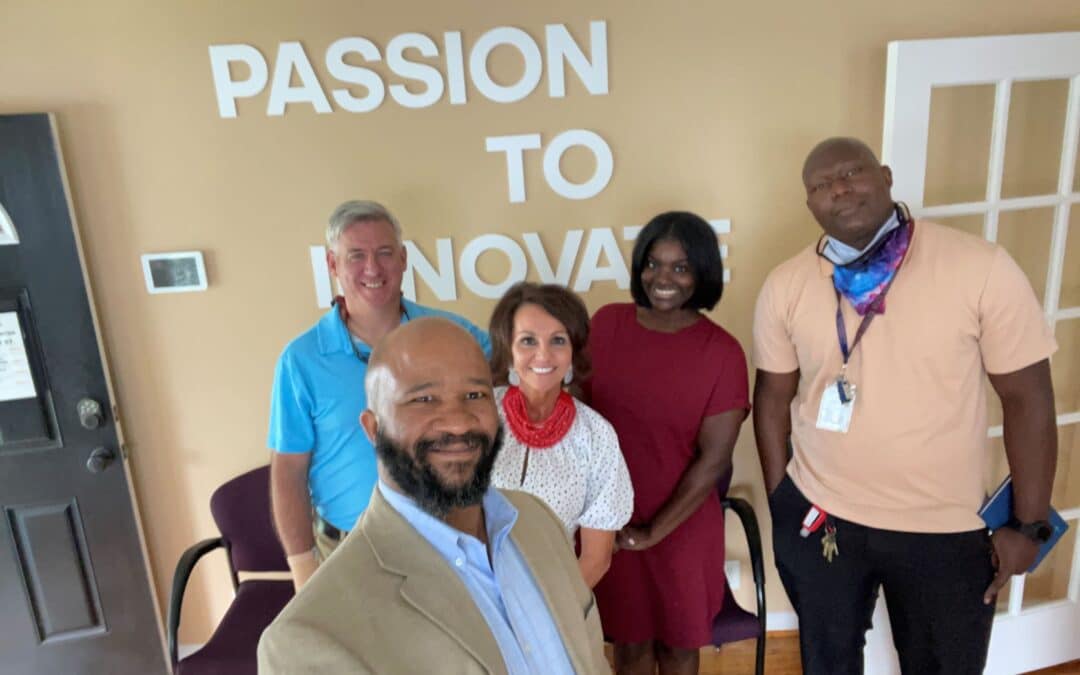For the third year in a row, the SC Office of Rural Health (SCORH) has received a Rural Business Development Grant from the U.S. Department of Agriculture (USDA) to expand its Digital Economy Ecosystem (DEE) program.
This year’s grant of $155,447 will bring the program to Newberry and Greenwood counties. The DEE project launched in 2020 with USDA funding to establish digital economy ecosystems in Williamsburg and Barnwell Counties. The following year, Orangeburg County was added to the project.
“With five locations across the state, we have successfully established a DEE network across South Carolina,” said Paola Gutierrez, the lead strategist who spearheads the project for SCORH, along with Kim Bowman, founder and CEO of the SC Rural Innovation Network (SCRIN).
A digital economy ecosystem features technical education, job training, and community planning to foster technology-based entrepreneurship and remote work opportunities in these rural communities. A successful digital economy ecosystem increases digital literacy, creates quality jobs and builds wealth in the local community.
In each community, the project begins with training sessions that provide an overview of broadband technology and its applications to rural community leaders.
“This first step in the process includes state and non-profit partners who offer their expertise, as we work together to move the needle forward on digital literacy in South Carolina,” Gutierrez said.
Community stakeholders then work with SCRIN to develop a rural innovation roadmap that reflects the communities’ assets, competitive advantages and goals for a digital economy. The roadmap may include education, job training and leadership training in partnership with local libraries, public school systems, technical colleges, and four-year universities.
“A DEE is an interconnected system of people, programs, and structures working together to make it possible for technology-based entrepreneurs, businesses, and workers to thrive,” Bowman said. “Every community kickstarts DEE revitalization from a different starting point, but we’ve seen how the process can encourage community buy-in, attract investors, and build momentum for a new way of life.”
In Barnwell and Williamsburg counties, for example, the DEE project has resulted in new co-working spaces, summer tech institutes for middle and high school students, a program for schools to showcase STEM programs to the business and manufacturing communities, a downtown farmer’s market, new courses in drone technology and website design at Williamsburg Technical College, and expanded telehealth availability.
Additionally, Barnwell recently partnered with USC Salkehatchie to secure USDA funding to develop the Propel Business Lab, a 12-week business accelerator with 20-person cohorts in Barnwell and Allendale Counties. The program will culminate in a pitch competition with startup funding for participants. And Williamsburg’s DEE and the Digital Lane are developing an agribusiness program to introduce agricultural technology and tools, land management, access to new markets, and farm-to-table opportunities.
Orangeburg County has completed its roadmap development process and will move into implementation phase in the coming year. Newberry and Greenwood counties, as the newest additions, are beginning the roadmap process.
# # #
About the South Carolina Office of Rural Health
The South Carolina Office of Rural Health (SCORH) is a non-profit organization with a mission to close the gap in health status and life expectancy between rural and urban communities in the Palmetto State. SCORH has been promoting investment, opportunity and health within rural communities since 1991.
With 27 percent of our state’s residents living in rural areas, SCORH believes in preserving the unique character of rural communities without compromising their opportunities and access to critical services.

